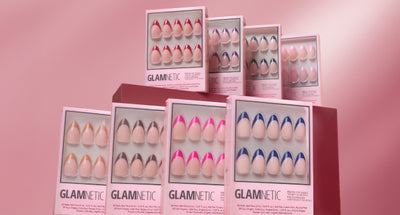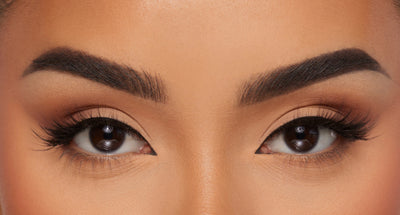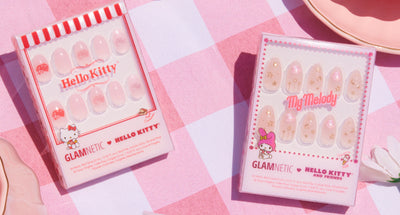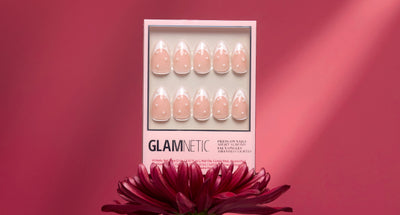The Many Benefits of Facial Moisturizer

Admit it; you want smooth skin. Velvety-soft, photo-filtered skin is a dream that many of us try to achieve with our daily skincare regimens. Well, your facial moisturizer can help you achieve that goal.
While a facial moisturizer won’t eliminate your pores, they still have many beneficial ingredients worth exploring. We’ve got the scoop on what to look for in a moisturizer and other facts you need to know.
What Is Facial Moisturizer?
Facial moisturizers have come a long way since your grandma’s cold cream. Today’s moisturizers are packed with antioxidants, vitamins, and exfoliating ingredients, and you can choose from oil and water-based creams, gels, and serums.
Facial moisturizers help hydrate, protect, and nourish the skin. They work to keep moisture in and kick dryness out to the curb.
Daily moisturization keeps your skin healthy and happy. Since your skin is the largest organ in your body, it’s vital to keep it fortified with nourishing ingredients.
What to Look For in a Facial Moisturizer
Facial moisturizers can do a lot more than just give you smooth skin if you choose the right ingredients. Here are a few beneficial ingredients you’ll want to look for on a label:
Hyaluronic Acid
Hyaluronic acid is the main component that gives your skin its structure, plumpness, and hydrated appearance. It is a powerhouse ingredient in many skincare products and facial moisturizers.
Hyaluronic acid is excellent for any skin type and provides many benefits to the skin, like the following:
- Hyaluronic acid can help reduce redness.
- Hyaluronic acid increases the elasticity and hydration of the skin.
- Hyaluronic acid helps to reduce the appearance of wrinkles due to its plumping effect.
- Hyaluronic acid soothes dry, itchy skin.
Vitamin C
Vitamin C might make you think of orange juice, but it’s found in a lot of other places besides citrus fruits.
Vitamin C is packed with antioxidants that fight and neutralize free radicals (which come from environmental pollutants such as air pollution, smoke, and the sun’s UV rays). It’s an excellent ingredient for those prone to breakouts and skin discoloration.
Vitamin C may have the following benefits:
- Vitamin C triggers your skin to produce more collagen and elastin.
- Vitamin C may help even skin tone if used continuously.
- Vitamin C brightens the skin by fading dark spots.
- Vitamin C can help your skin recover from sun damage.
- Vitamin C can help reduce the appearance of wrinkles when used daily.
Peptides
With a name like peptides, this ingredient sounds like it should be part of a cheerleading squad. But seriously, using peptides does give your skin a boost of youth and may lead to fewer breakouts.
Peptides are a chain of amino acids that make up proteins in the skin. Incorporating peptides into your skincare routine can add a boost of firmer skin in no time.
Peptides have other advantages as well, including:
- Peptides reduce the appearance of fine lines and plump the skin.
- Some peptides can help clear breakouts (but always check with your dermatologist).
- Peptides give your skin a tighter appearance.
Sunscreen
Sunscreen doesn’t just belong at the beach—it’s one of the essential ingredients to look for in a moisturizer. Sunscreen protects your skin from the sun’s harmful UV rays.
Dermatologists recommend a broad-spectrum sunscreen of 30 or higher. Adding sunscreen to your daily skincare routine will help prevent premature aging and skin discolorations, not to mention protecting you from more serious health concerns down the line.
Lactic Acid
While we don’t suggest pouring a gallon of milk into the bathtub, we do recommend adding lactic acid to your skincare routine.
Lactic acid is an alpha hydroxy acid found in milk and dairy products. It exfoliates the skin and helps to fade dark spots and smooth the skin. It has several other skin bonuses.
- Lactic acid exfoliates the skin and improves skin texture.
- Lactic acid stimulates collagen production.
- Lactic acid helps ease dry skin and soothe irritation.

Why Should You Use a Moisturizer?
The practice of using a daily moisturizer should start in your 20s, if not before then. The earlier you begin taking care of your skin, the better chances you have of pushing back visible signs of aging.
Moisturizing every day will reduce your chances of developing super dry or extra oily skin, too. Did you know that excess oil can mean that your skin is dehydrated? Your skin will begin to produce extra oil to compensate for the lack of hydration in the skin. This overproduction of oil can lead to breakouts and irritation.
Here are a few other reasons why you should incorporate a facial moisturizer into your daily routine.
- The skin on your face is exposed to the sun and environmental pollutants every day. Using a moisturizer will help protect your delicate skin from these factors.
- Moisturizing helps prevent and reduce the appearance of lines and wrinkles.
When Should You Use a Moisturizer?
Depending on your skin type, it is crucial to moisturize your skin twice per day. Try once in the morning after cleansing and again at night before laying down to rest.
If you take hot baths or showers, moisturize when you get out, too. Hot water will dry your skin because it opens the pores and strips the skin of its natural moisture.
How to Moisturize Your Face
Moisturizing your face is simple, and it doesn’t take much time.
Always make sure your hands are clean before you touch your face and before you place your fingers inside a jar of cream. Ideally, if your moisturizer comes inside a jar, use a mini spatula to scoop the cream onto your fingers. If you have a pump moisturizer, you’re in the clear.
- Cleanse your skin with a facial cleanser and a Cotton Candy Cloth. Pat your face dry.
- Apply your moisturizer after applying serum (if you use one) and before applying SPF and makeup.
- Apply your moisturizer from your neck to your face and up to your forehead using an upward motion, and make sure you’re working gently.
The Bottom Line
A facial moisturizer is beneficial to your skin for many reasons. Moisturizers are packed with nutrients that feed your skin with anti-aging formulas. These ingredients help protect your skin from damage from the sun’s rays, environmental pollutants, and many other harsh factors.
Hyaluronic acid, vitamin C, peptides, sunscreen, and lactic acid are just a few of the many beneficial skincare components to look for in a moisturizer.
If you’re interested in taking your routine further, Glamnetic is here to help. With a wide collection of makeup remover wipes, pads, cotton swabs, and pens, we want to help you feel fresh-faced and beautiful every single day. Keep your skin clean, nourished, and fresh, and always remember to follow with your fave moisturizer.
Sources:
Why Is There Acid in My Face Wash? | Rosacea
https://www.allure.com/story/vitamin-c-benefits-for-skin | Allure
Peptides for Skin: Benefits, What to Look for & Side Effects | Healthline










